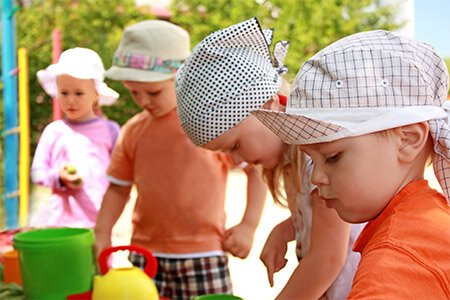Ask A Child Therapist: Questions and Answers
One of the greatest stressors for global workers is seeing their children struggle, especially in a setting where they may not have support or resources to help. Valeo’s child and adolescent therapist, David, has helped many global worker families over the years. This is the second in a series of posts in which David answers some of the most common questions global workers have been asking about their children.
What are some specific ways that I can help my toddler adjust to a new culture? Is it good to push them to get out and talk to people, so it becomes normal, or is it better to protect them and let them adjust over a longer period?
There are so many variables involved in this. For example, one of our children is introverted, doesn’t like being touched, and can be aggressive when others break this boundary in their life. This child needed to have ways to feel safe and in control. So we taught our kids to be polite but to say no, or move away, or if people didn’t listen to them to come to us. If there was not an opportunity to get help from us, we even told them it was all right to protect themselves by hitting or yelling. I know it doesn't sound nice, but it's about learning to protect yourself when needed.
Our oldest, between the ages of three to eight or so, regularly refused to be in pictures with people she didn't know. We had to explain a lot to other people or just say, “She is shy.” And guess what: I had to make a conscious decision to not care about what that person thought. Family first! Now being polite in that process is important, but not the ultimate consideration; my family is. Here’s the thing: After those first years, my daughter felt secure in the culture and language, and she loves Thailand and Thai people!
Our youngest, in comparison, loved to be helped, pampered, have her photo taken, and her golden hair touched. She wanted to be Thai more than anything else. She loved it when people fed her things on the playground! So there was a lot of personality involved in all of that.
So I think we do need to push our kids out a little. But do this with them, and do it in security and care. I could talk a long time about this, but this is the short answer.
What are some ways to balance grace and discipline for those behaviors that are not acceptable?
As we all know, some of us are more prone toward one of these (either grace or discipline) than the other. So know yourself and your default. Let me share a shortened version of a story.
A friend of mine told me about his young son, who was about nine at the time. His son would borrow his tools (with permission); he loved to work on things and build stuff as a young boy. However, the boy would often leave stuff out, forget to put it away, leave it in the rain or in the yard to get run over by the mower. My friend told me how he would talk to him, discipline him; nothing worked. The same often happened in the boys’ school work.
After hearing these stories, I felt bad for this boy. I also realized my friend is more prone to discipline than grace. So finally, when I got enough courage, I said something like, “I wonder if he has some memory or processing issues?” My friend had never thought of this. He thought I was a crazy counseling guy anyway! He talked with his wife, and they decided to take their son for extensive testing. Sure enough, he had a significant processing disorder and memory issues. They actually felt really bad; they had been disciplining all these years with no effect. They changed their methods, and things have drastically improved for them and their son. I say all that because often, we just look at things from one perspective and may miss important factors.
Another example is with my kids during our really difficult time as a family in transition. My older two were fifteen, and our youngest was twelve at the time. One of them was so angry; all sorts of behaviors came from that. We had to establish certain parameters, such as: “You can be angry, you can tell us that. You can even tell us you hate us [they were doing that], you can say we are bad parents because it feels that way! However, here is a list of words you can and can’t use.” We had a list of about five vulgarities that couldn’t be used, or there were consequences. We had strict cell phone usage times (put up by a certain time, in a central location). We also listed behaviors you can’t engage in: breaking things in the house, violence towards other people, etc. However, if you want to break stuff, you can go out back and smash plates, break old chairs, smack sticks off of trees, etc.
Did all of this work perfectly? NO! We talked a lot, trying to name their emotions, trying to sympathize with them. And also explaining things about the situation, such as “We had to move to the US because our sending fellowship could no longer fund us.” Just really practical stuff.
So I’d encourage grace in trying to understand and listen and realize how difficult this is; discipline/correction if they violate set guidelines. The only two “rules or guidelines” we ever had were “Is it loving?” and “Is it respectful?” If it doesn’t meet those criteria, then don’t do it.
I’ve heard you say that kids experience loss, and the grief comes after. Are there typical timelines for the grief to hit? I'm aware that our kids go through lots of transitions, but sometimes it seems like their acting out does not coincide with the loss, so it's hard to know what the emotional reaction is reacting against.
In general, typical timelines include the realization that things are not going to be the same. For adults or older kids, they realize grief is going to come. They start crying early or being angry earlier. We withdraw from others and start to be grumpy. With younger kids, often this comes later when finality sets in. Also, sometimes it just takes time after all the change has happened, the fun of newness wears off, or they start disliking things where they are. This is why lots of listening, thinking, feeling, guessing, and praying are so important!
Emotionally coaching our kids is key. For instance, if a child seems angry, I might say, “You seem really angry. I'm wondering if it's about not going to your friends’ house.” It's me making an educated guess. The kids may say, “Yes, I really wanted to go, but you didn't let me.” Then you can have a discussion about being disappointed and so on. Or the kids may say, “No, I'm not angry; I'm sad because we were going to make cookies and have ice cream.” Then I would say, “Oh, that is sad that you won’t get to have that fun time. I would be pretty sad about that, too.” And after empathizing, you can continue a conversation.
So yes, things don’t always coincide, so it can be hard to figure out. This happens all the time in my home! Hopefully, these examples give you some ideas of how to help your kids through these times.
This is the second in a series of Q&A with Valeo’s child and adolescent therapist, David. Stay tuned for more posts answering common questions from global workers about how to help their children.
If you are a global worker and believe your family would benefit from counseling, Valeo would be honored to serve you. Click here to Start Now.




